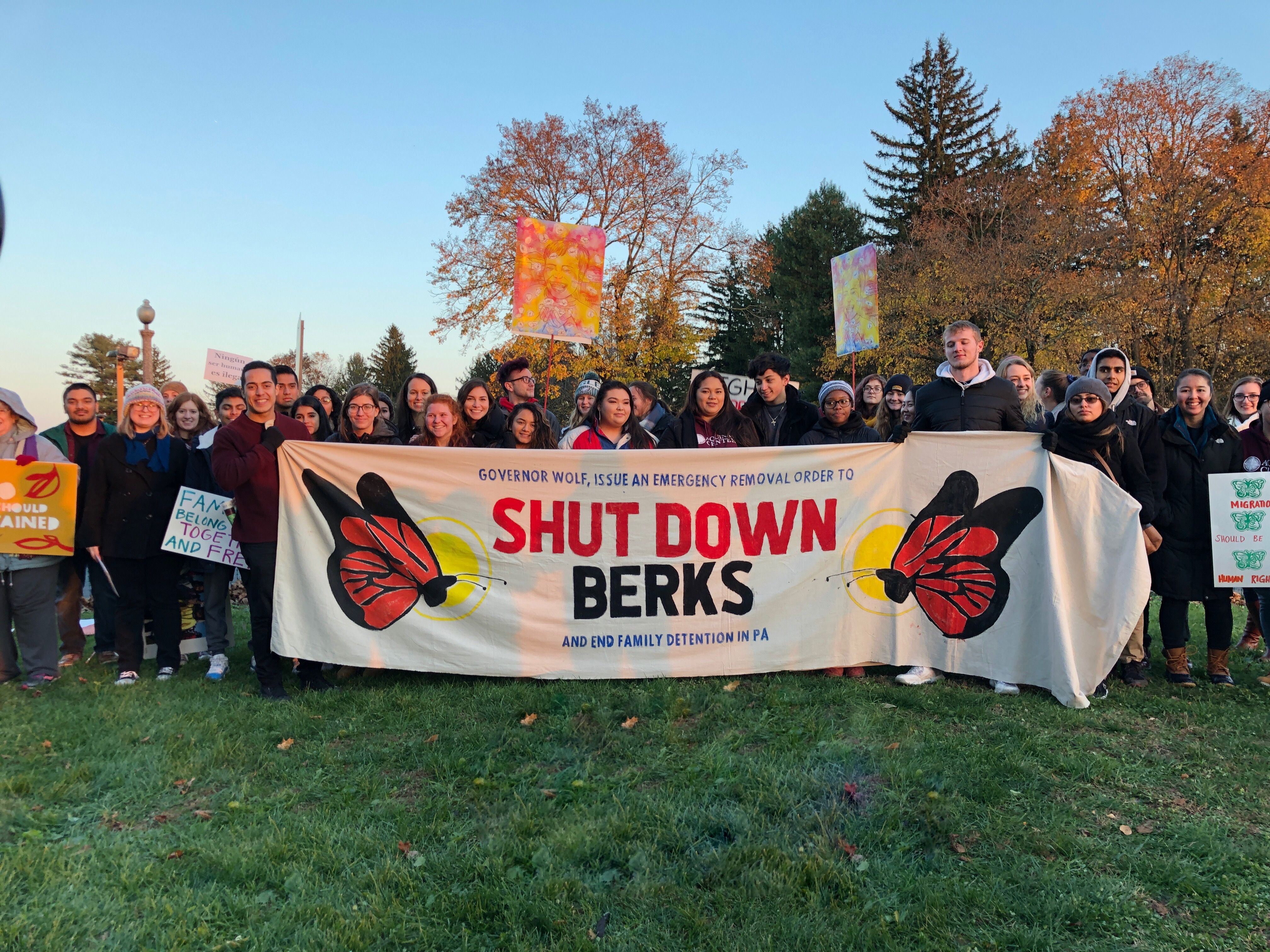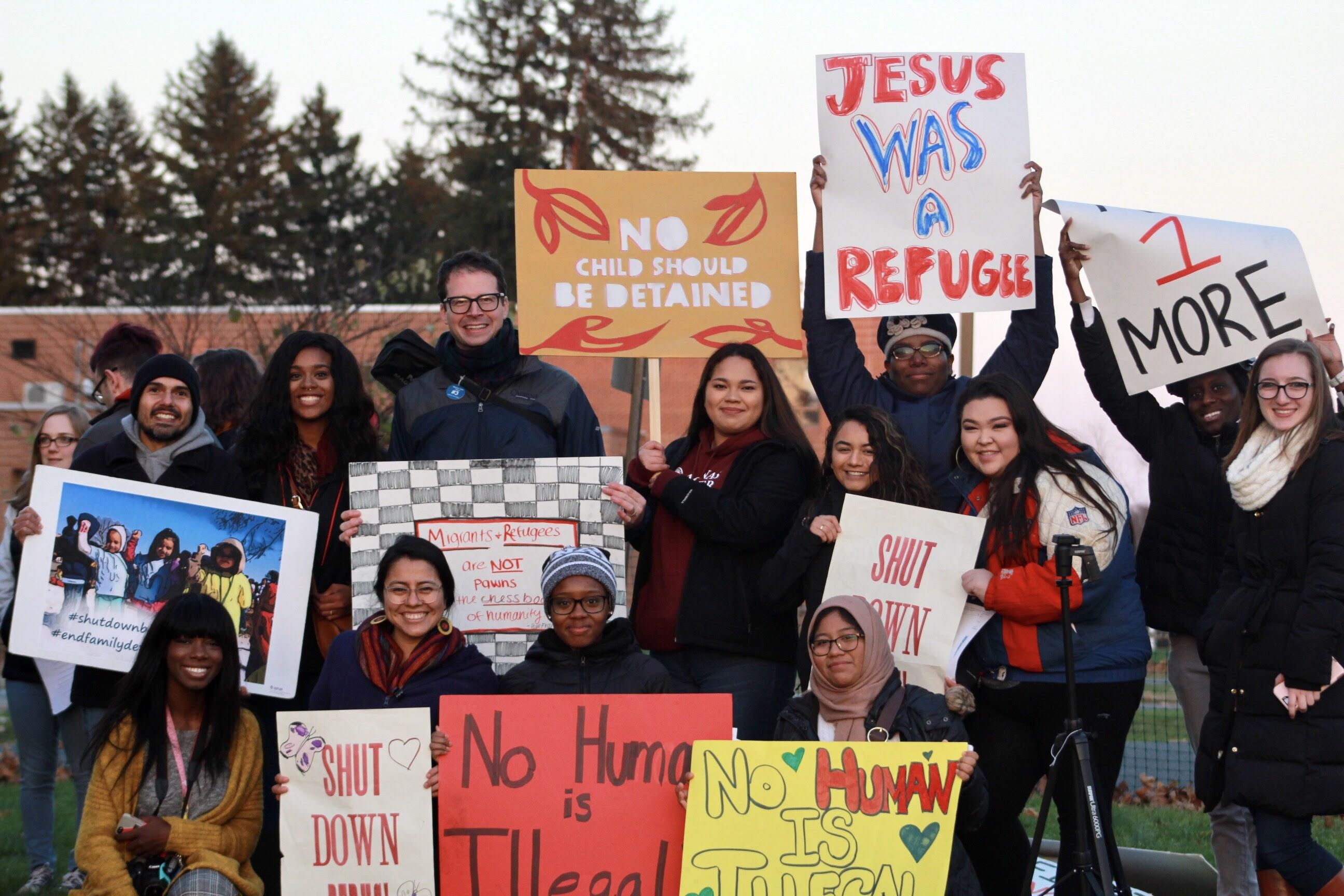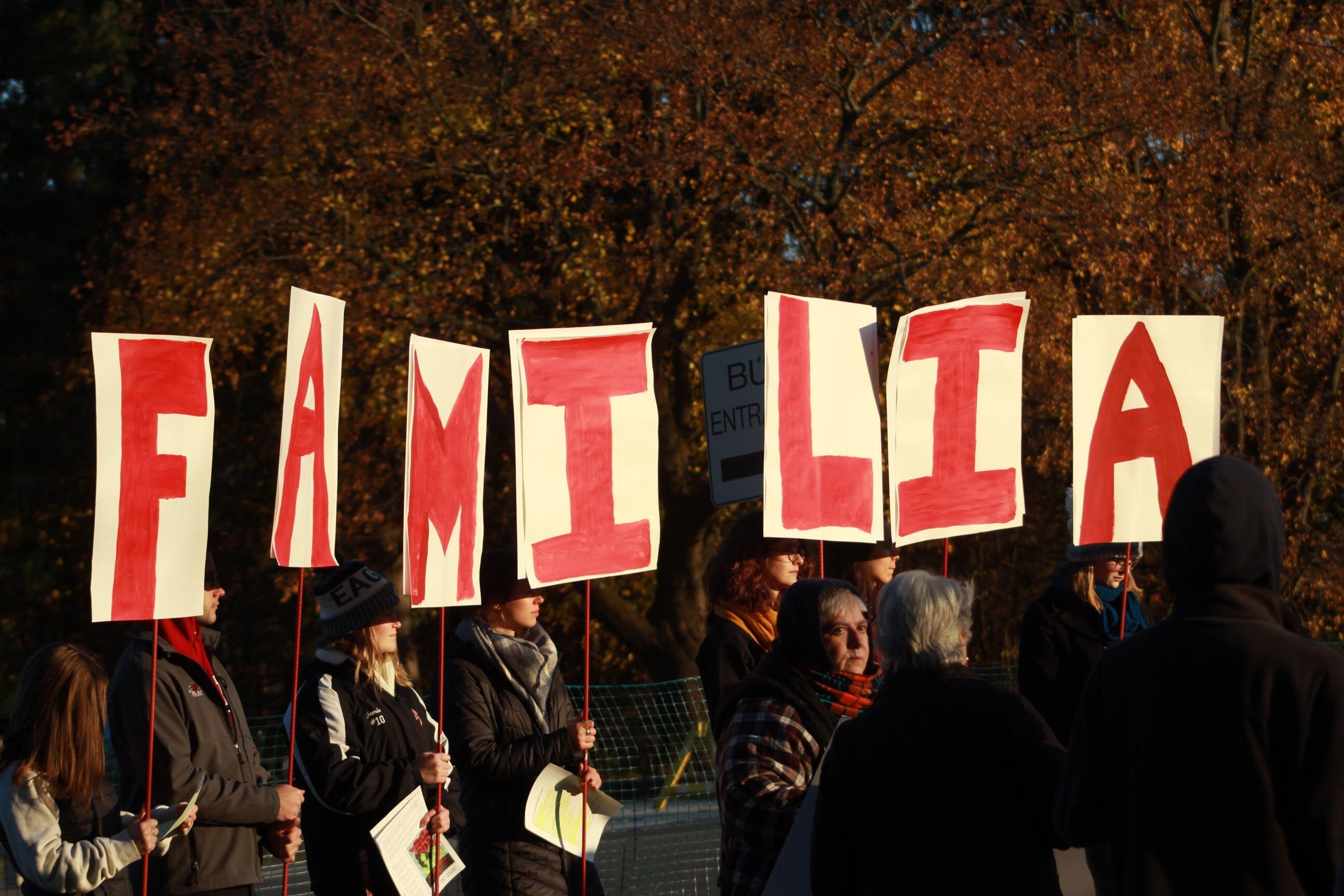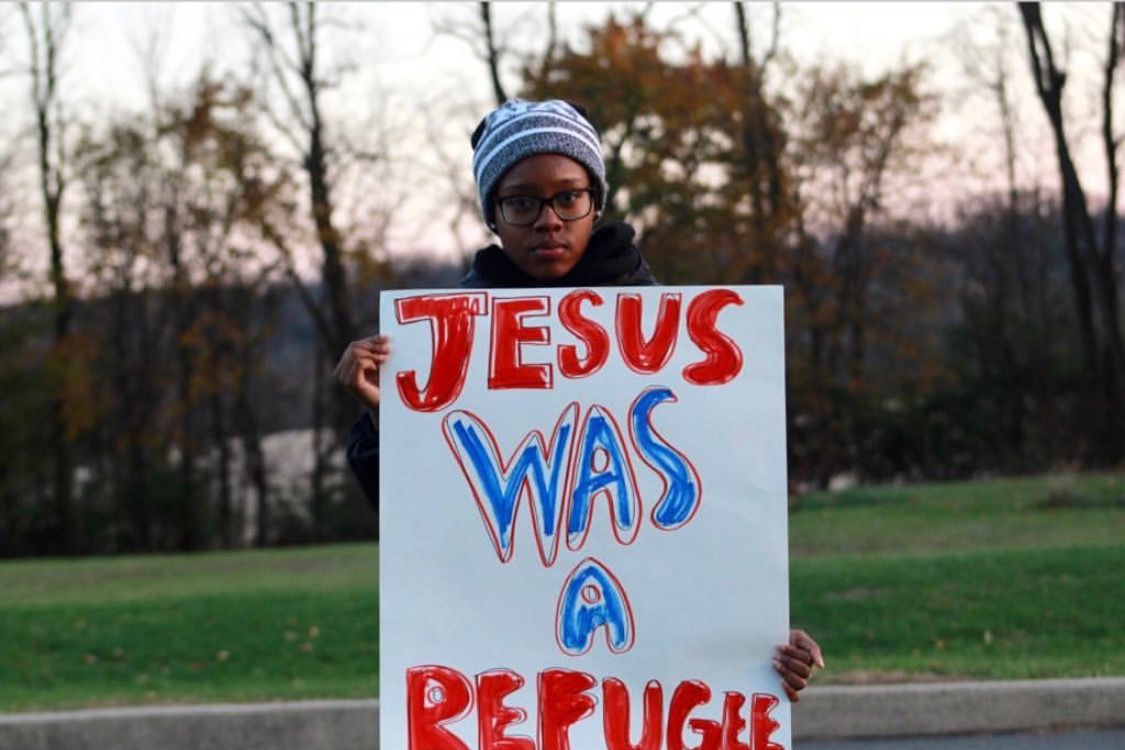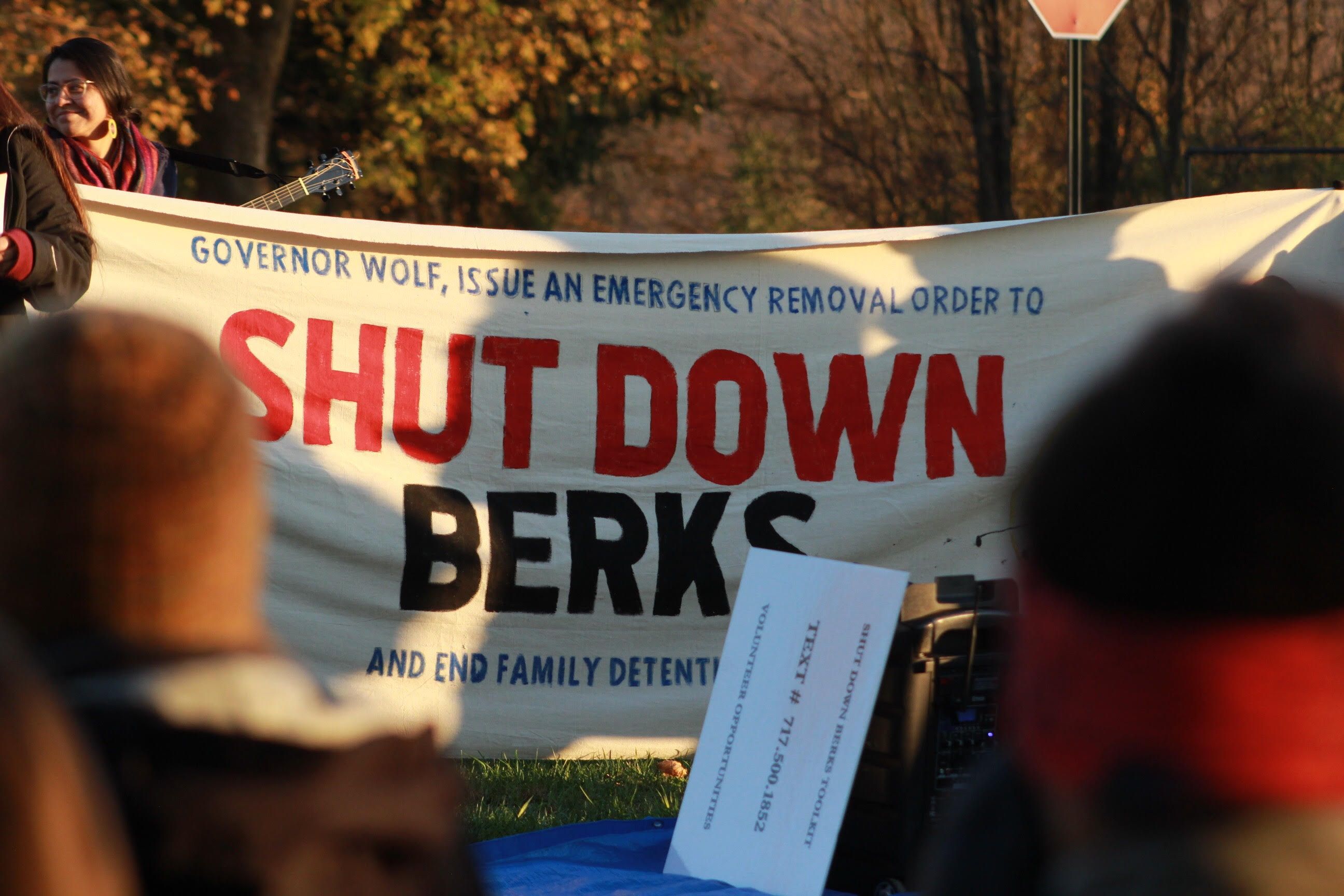In Leesport, Pennsylvania, a detention center for immigrants and their families is still running, despite protests to shut the facility down.
The Berks County Family Residential Center is one of three detention centers still open in the United States. The Karnes County Residential Center in Karnes, Texas, is operated by the GEO Group and has 532 beds. The South Texas Family Residential Center in Dilley, Texas, is operated by CCA and contains 2,400 beds. Berks County center, operated by Berks County through a contract with ICE, is the smallest of the three and has 96 beds.
John Michael Cotignola-Pickensis is an Advocacy Programs Coordinator for the PA Council of Churches. Each month, a group of people from a variety of churches, advocacy programs and schools (including Cabrini) join together at the Berks detention center for a vigil that helps bring awareness to the issue and reassure the detained families through song and prayer that they are not alone and people are fighting for their freedom.
“Shutdown Berks Interfaith Witness is a grassroots organization that started around 2014 and focuses on the families inside the Berks County family detention center,” Cotignola-Pickensis said. “These are people that do not look like me – a white male, but they are people running for their lives, typically from Central America.”
Ayannah Mcilwain is a senior philosophy major at Cabrini. She first heard about Berks detention center and the vigils Cabrini participates in through her ECG 300 class taught by Abel Rodriguez.
“The reason I wanted to attend the vigil at Berks was to be a part of something bigger than myself,” Mcilwain said. “The center is so close to Cabrini and my home and I had no idea that it existed. I wanted to get more information on what these people are going through and help them in any way I could, even if it was just offering my prayers and support.”
The purpose of the center is to house low-level, non-criminal families who are being mandatorily detained during removal proceedings, in a family-friendly, shelter-like setting. According to the Juvenile And Family Residential Management Unit of Berks County, families are provided with ongoing medical and mental-health care as well as other supportive services and school age children are taught by state certified educators.
“Since the beginning, we have argued that the center does not follow the Flores Agreement, because there have been children that have been in there for more than 20 days, which is the agreement,” Cotignola-Pickensis said. “There are children who have been in there for over a year. It’s obvious the Flores Settlement is not being followed at Berks, which is something we have brought up a lot, but is not a deal breaker for some reason.”
After everyone participating in the vigil gathered and settled down, silence filled the outside of the center. In the distance, you could see a father in the courtyard playing with his young son riding a tricycle.
“I felt a wave of emotion when I saw the family outside because it made everything so real to me,” Mcilwain said. “I thought about the people that drive by the center everyday on their way to their home and their families and how the people inside don’t know if they will ever have that freedom again.”
The Berks County detention center had its license revoked by the state of Pennsylvania on Feb. 21, 2016, but continued to operate after losing its license.
“Ultimately we are asking PA Governor Tom Wolf for an Emergency Removal Order – or ERO. That would effectively shut down the center and put a hold on any immigrants being placed into the center,” Cotignola-Pickensis said.
“[Gov. Wolf] is able to do that legally if it is proven that the families inside the center are at risk. He continues to say that he cannot legally do that because there is not enough evidence to prove that there are forms of abuse going on. The unfortunate thing is that there is documentation of abuse on the Department of Human Services’ website. A former guard was fired for rape, so we know there have been forms of abuse.”
“Politics is a selfish game. No matter how good a politician seems on the outside, you need to pay attention to their actions for they will show what they truly stand for,” Mcilwain said. “The fact that the governor of the state that I grew up in is supporting the detainment of families by not taking the necessary steps to shut the center down is honestly disappointing.”
The parents and children, most of whom are seeking asylum, have reported physical abuse, verbal abuse and medical neglect inside the detention center. Treatment such as this is not only inhumane, but also traumatic for those enduring it in hopes for a better future.
“We wonder what it takes to issue an ERO, if not rape,” Cotignola-Pickensis said.
A 2017 report from the Inspector General of the Department of Homeland Security noted that after three surprise visits, the family detention facility was “clean, well-organized, and efficiently run.” The report also concluded that “ICE was satisfactorily addressing the inherent challenges of providing medical care and language services and ensuring the safety of families in detention.” ICE officials defend Berks as a “humane alternative to maintain family unity.”
“I was shocked when I stood across from the building. The outside looks like it is a part of the nursing home across the street, you would never know it was there unless someone told you,” Mcilwain said.
Over time, the population and makeup at the Berks detention center have shifted. The majority of the beds used to be filled by mothers and their children, but today they house around 20 families, mostly all fathers and children. These families were fleeing violence from their homes of El Salvador, Guatemala and Honduras – often referred to as the “Northern Triangle,” – and coming to America seeking asylum.
Asylum seekers are different than migrants who illegally enter the country in hopes to stay. Immigrants who come to America seeking asylum are typically running from domestic abuse or gang violence that was occurring in their home country. Other migrants whose lives are not in danger may want to come to America in hopes of a better life for their families and more opportunities for work.
Former Attorney General Jeff Sessions told immigration judges they could no longer grant asylum to the majority of migrants who come here trying to escape dangerous situations.
According to the Department of Homeland Security, in 2015, 84,182 people applied for asylum and 15,999 were granted asylum status. U.S. immigration law does not set a limit on the number of people granted asylum each year, but the president does set a limit on refugees. In 2019, the refugee admission limit is 30,000 – which is 15,000 fewer than 2018.
“The first step [we hope to take] would be to get inside the center. The second step would be to get legal representation from legitimate lawyers who would not take advantage of the families or our organization – and the third step would be to get them removed from the detention center and into a community setting so their court case can be heard in hopes of the end result being asylum status,” Cotignola-Pickensis said.
You can help the families inside of Berks by calling your local Governor’s office and giving your voice to those still being detained.

